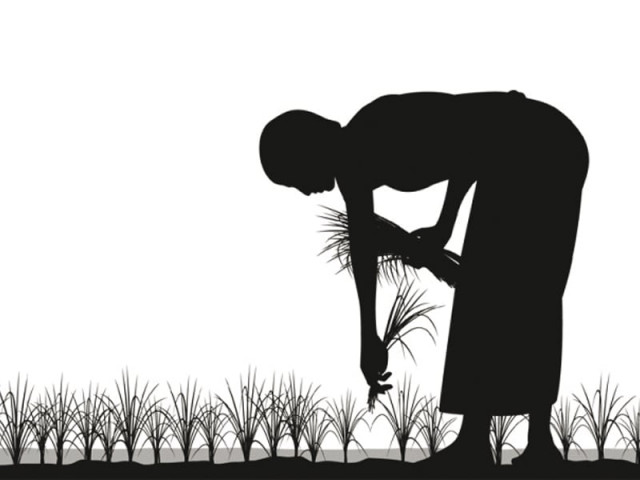Results yet to be seen: 'Some of the land given to peasants was largely uncultivable'
Experts point out flaws in the Sindh govt's initiative for free distribution of land.

Experts point out flaws in the Sindh govt's initiative for free distribution of land. CREATIVE COMMONS
The need to accord female peasants a greater right to ownership of land was stressed at a workshop for media sensitisation on 'Women's Right to Land' held on by the Society for Environmental Actions, Reconstruction and Humanitarian response (SEARCH) on Saturday.
"The denial of right to ownership of land to the women is rooted in a lack of land reforms and poor state of peasants' rights," contended Punhal Saryo, who heads a non-profit Hari Porhiyat Council (Peasant Labour Council).
Saryo drew attention to the Sindh Tenancy Act and recent land distribution scheme of the Sindh government for landless peasants, especially women, to show shortcomings in both of them. "The Sindh government's initiative for free distribution of land has remained far from achieving the desired fruition," he maintained.

In 2008, Sinch Chief Minister Qaim Ali Shah announced distribution of around 200,000 acres of land to the landless peasants. Each peasant was to be given up to 25 acres. However, after more than five years and completion of the first two phases of the distribution process, only around 55,000 acres of land has been given away in 17 districts to around 6,000 peasants - 4,800 women and 1,200 men. Saryo claimed that a large number of free land recipients have been given between four to 16 acres of land with a majority getting ownership in the single digit acres.
Pointing out flaws in the process, he said that the land identified and distributed by the revenue officials was largely uncultivable. "In Thatta and Badin, the land was in large parts affected by salinity. In Benazirabad and its neighbourning four districts in central and upper Sindh, most of the distributed land was either waterlogged or covered in a jungle of wild bushes."
Journalist Ishaq Mangrio criticised the procedure adopted for finding out the most deserving peasants as beneficiaries of the free land scheme. "Open katchehris were to be held at union council levels in search of worthy recipients of free land. But these katchehris were restricted to either the tehsil level or the residences of the influential political people."
The speakers also blamed the government for failing to provide adequate financial assistance for cultivation of free land to the peasants.
Zulfiqar Halepoto, a civil society activist, however, defended the land distribution process of the Sindh government, saying that inherently the process was not wrong. "The poverty-band formula for land distribution was provided by a German bank which focused the most deserving peasants." Still Halepoto agreed that the influence of local politicians compromised transparency of the process.
Taj Marri, a peasant leader from NGO Bhandar Hari Sangat, emphasised the need for amendments in the Sindh Tenancy Act to give greater protection to peasants. "The Act discriminates against a peasant when it comes to recognizing their status." According to him, a peasant is required to have at least two years work experience before he can enter a tenancy agreement with the land owner. On the other hand, an industrial labour can get the status of labour with just three months experience.
Published in The Express Tribune, December 29th, 2013.



















COMMENTS
Comments are moderated and generally will be posted if they are on-topic and not abusive.
For more information, please see our Comments FAQ